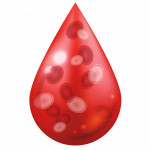Starting antiretroviral (ARV) HIV treatment sooner may protect people infected with both HIV and hepatitis C virus (HCV) against liver damage, according to the authors of a study published in the February 2009 issue of the Journal of Acquired Immune Deficiency Syndromes.
While there’s no question that HIV speeds HCV disease progression, studies have not consistently shown that treating HIV slows HCV progression. Even less research is available to help determine whether HIV treatment should be started early—or delayed—in patients coinfected with both viruses, given the liver-related risks and benefits of available ARVs.
To determine the impact of ARV therapy on HCV-related liver damage—known as fibrosis—Firouzé Bani-Sadr, MD, from the Groupe Hospitalier Universitaire Est in Paris, and her colleagues studied the medical records of 395 patients with both HIV and HCV. The patients came from a study of HCV treatment and had their degree of fibrosis confirmed by liver biopsy.
Bani-Sadr’s team found that the length of time between initial HIV diagnosis and the start of HIV treatment did impact fibrosis, with those who waited longest to begin therapy more likely to have the greatest liver damage. Other characteristics, such as CD4 counts and use of specific ARV drugs, had no discernible effect on fibrosis.
While the authors concede that their study has limitations, they state that their results echo those found by two other studies. They theorize that immune system inflammation from untreated HIV replication may be a major cause of liver fibrosis in coinfected patients, and they encourage further study.
Advertisement
Advertisement
Advertisement






Comments
Comments